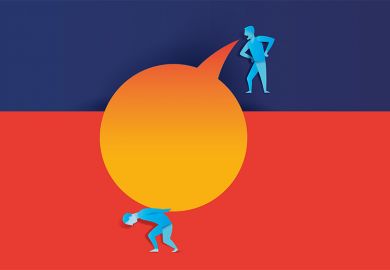The University of Chicago has long served as the benchmark for scholars attempting to unpack the everyday lives of those living in our most marginalised communities, and at the core of the Chicago tradition is the demand for researchers to engage with and appreciate the most demonised of urban cultures. In Renegade Dreams, Lawrence Ralph has not only located and engaged with the deep roots of Chicago School scholarship but also adapted its tradition to cope with the brutal political economy of the 21st century and its accompanying violence, incarceration and infectious disease, all exacerbated by the war on drugs.
The gang has become a ubiquitous receptacle of respectable fears, and a potent symbol of moral decline associated with a range of societal maladies. A common thread running through most of these theories of youthful rebellion is the notion of an era in which youth coexisted with the parent culture. And although this idea was dismissed by the great Geoffrey Pearson in his classic work Hooligan: A History of Respectable Fears, the idea of returning to a golden age of youthful subservience and social harmony has proved an enduring and attractive fantasy, particularly for politicians.
In Renegade Dreams, Ralph shows how in Eastwood on Chicago’s West Side, veterans of the Divine Knights gang also hark back to a semi-mythical past when, during the era of civil rights protest, less violent and more politically savvy gang members were community activists. Ralph also considers the way nostalgia is contested by two rival churches as they lock horns over the gentrification of Eastwood’s fine period buildings, one side bemoaning the loss of a golden age (pro-gentrification), the other stressing the manifestation of the area’s various assets in the here and now (“leave us alone”). Crucially, nostalgia is also negotiated daily by gang members and their associates, and violence, loyalty, music, the drug trade and aspirational footwear all contribute to a quest for the authenticity upon which urban African American youth culture relies for its self-perception.
For Ralph, a wide range of social and physical injuries are linked inextricably to dreaming. In Chicago, firearms injure four times as many people as they kill, affording the “crippling currency of obligation” of gang membership an unbearable poignancy. Some of the most moving sections of Renegade Dreams relate to the imagined futures of the Crippled Footprint Collective, a group of young men who use their wheelchairs and catheters to educate high school students on the effects of a bullet in the spine. Ralph’s carefully nuanced analysis shows how the resilience of youths severely disabled by gang violence creates opportunity where many would see only despair.
The “junkyard of dreams” built by neoliberalism has ensured that the Divine Knights are one of the few local institutions with a coherent history, and consequently are integral to the complex imagined alternative futures that also encompass everyday safety and security. All merge into a collage of dreams that stand in stark contradiction to the lazy dystopia of underclass-based analysis, with its accompanying assumptions of fragmented, essentially pathological deviance and moral bankruptcy.
Although it lacks the easy narrative of many traditional ethnographies, this is precisely the book’s strength. There is no convenient valorisation of the ordinary extraordinariness of the lives portrayed here. Their dreams are shown to be chaotic, complex and contradictory. Just like life in Eastwood.
Renegade Dreams: Living through Injury in Gangland Chicago
By Lawrence Ralph
University of Chicago Press, 256pp, £42.00 and £14.00
ISBN 9780226032689, 19 and 2856 (e-book)
Published October 2014
Register to continue
Why register?
- Registration is free and only takes a moment
- Once registered, you can read 3 articles a month
- Sign up for our newsletter
Subscribe
Or subscribe for unlimited access to:
- Unlimited access to news, views, insights & reviews
- Digital editions
- Digital access to THE’s university and college rankings analysis
Already registered or a current subscriber? Login





